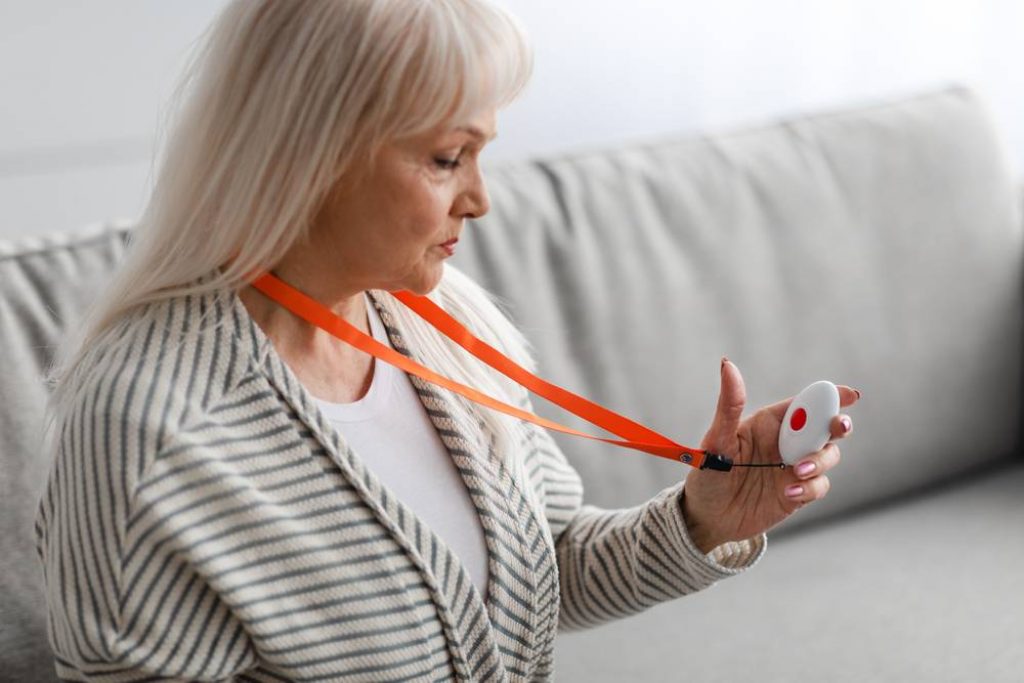
How To Get Medical Alert Devices Under Medicare
Many seniors are opting to maintain an independent lifestyle and “age in place” in their own homes rather than live in a senior /retirement facility. However, many seniors still often go to such facilities mainly to be assured of onsite and round the clock medical care.
Related Topics (Sponsored Ads):
Thankfully with modern technology, seniors can stay in their own home and still be medically protected. Medical alert systems can provide seniors and their loved ones peace of mind, knowing that such a system will quickly summon help if there is a fall, accident or illness requiring medical assistance – even if the affected senior can’t get to their phone or is unconscious. These systems when activated call a professional monitoring person, who will then summon help as required by the situation.
Many of these medical alert systems have a wearable unit that has a “fall detection” feature. It will automatically call for help if it detects the person has fallen down. This is a very important feature, as about 25% of all seniors will experience a fall, which can present a grave threat to the person. While there are many companies providing this equipment and monitoring service, they can be expensive for many seniors, who in turn look to Medicare to get such a system.
Medicare can help seniors get many kinds of medical and health devices and supplies, covered under Medicare Part B, if they are considered durable medical equipment (DME). Unfortunately, Medicare does not consider medical alert devices as DME, therefore does not provide coverage for them. However, Medicare Part C – commonly known as Medicare Advantage – often can provide coverage for these systems.

Medicare Advantage Plans
Medicare Advantage is an optional add on insurance plan to regular Medicare. It is offered by many insurance companies and regulated by the government. These plans vary widely, depending on a person’s location and types of coverage they want to have. You have to enroll in such a plan and pay premium payments for it.
Coverage for medical alert systems and fall detection devices is an add-on benefit available with some Medicare Advantage plans as a way for insurance companies to make their plans more attractive to shoppers. This coverage perk is not required by the government’s Medicare regulations. As a result, coverage can vary widely between insurance companies.
Some of these plans provide a medical alert system for free, while others offer a partial discount. There are also situations where coverage is only available for seniors who have a qualifying health condition. For companies that only offer a partial discount, keep in mind that any amount you pay toward the alert system will not count toward your Medicare plan’s deductible or its out-of-pocket maximum. That’s because the benefits for the device are through a discount program rather than medical coverage.
Listed below are the best Medicare Advantage plans to get medical alert systems.
AARP/UnitedHealthcare
AARP/UnitedHealthcare’s Medicare Advantage plans offers the best coverage available because they provide a free alert system that is available to most policyholders, without restrictions. However, coverage can still vary by individual plan. UnitedHealthcare is the most popular Medicare Advantage provider, issuing 27% of all policies in the nation. Their plans are available everywhere in the country except for Alaska and Louisiana. The AARP-UnitedHealthcare partnership is a result of a marketing agreement between the two companies. Even when the plan name is AARP, the insurance is through UnitedHealthcare. To get an AARP Medicare Advantage plan, you do not need to be an AARP member in order to enroll in the insurance coverage.
Blue Cross Blue Shield
Blue Cross Blue Shield (BCBS) companies are part of the Blue Cross Blue Shield Association (BCBSA), an alliance of separate health insurance businesses covering members in each state. Policyholders can use a Blue Cross Blue Shield insurance card almost anywhere in the U.S., subject to provider participation and plan benefits. Many of their Medicare Advantage plans also will provide a free medical alert system, with some restrictions.
Humana
This very large nationwide company will provide a free medical alert system to patients with a diagnosed and documented heart condition. For others, some of their Medicare advantage plans will provide a discount for such a system.
Kaiser Permanente
Kaiser is one of the highest rated companies offering Medicare Advantage plans. Part of their coverage is for a discounted medical alert system – starting from $19 a month. Kaiser is mainly available in the West Coast.
Aetna
Aetna offers Medicare Advantage and Supplement policies to people currently enrolled in Medicare parts A and B. Part of their coverage is for a discounted medical alert system – starting from $20 a month. These plans cover other gaps in original Medicare (Parts A and B) as well. They have three types of Medicare Advantage plans: PPO, HMO and HMO-POS. Overall, Aetna has some of the cheapest Medicare Advantage coverage on the market and offers plans in 46 states and Washington, D.C.




